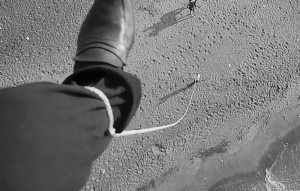I’ve had the fortune of getting a lot of my essays out of the way, so I have been passing the time by watching movies non-stop. I’ve hit some pretty good ones along the way that I’d like to share with you all.
In case people haven’t seen these… go watch them right away. The Richard Linklater Trilogy Before Sunrise, Before Sunset, and Before Midnight are some of the most subtly brilliant films I’ve ever seen. The major highlight in each is the script… Written by Linklater and the two lead actors, Ethan Hawke and Julie Delpy, these films are some of the few that come class to true authenticity. Yes, they certainly feel like they are a part of the ideological cinematic apparatus, but the dialogue flows so naturally between the leads, many thought it was improvised upon initial release. The film also hosts 20 plus minute talking scenes where the camera doesn’t cut, meaning the actors memorized EVERYTHING and delivered it with an authentic touch that makes it seem like they’re saying it all for the first time.
Next, I switched it up and watched the Ocean’s Trilogy and don’t have too much to say other than they are fun, escapist heist movies.
I also just watched the new HBO documentary on Kurt Cobain which was really well done. It was very similar to the doc we watched in intro to film years ago called Tarnation, which is Jonathan Caouette’s self made autobiography told in trippy, terrifying fashion. Both films really succeed in dissecting troubled adults live’s through artistic imagery matched with candid records.
I also watched the new Avengers, Fury, and Saving Private Ryan. Plus, I had gone to the movies a few weeks ago to see a new low-budget horror flick called “It Follows.” I know Brian would love it since he’s into that type of thing. I’m not a big horror fan, but this film was extraordinary. 2 million dollar budget… beautifully shot, incredibly scary, well acted and it has stuck with me to this day. Highly recommend it to everyone if they want a thrill.
I also want to comment on how great the presentations have been. Everyone is doing a really good job and I’ve enjoyed everything we’ve talked about so far. Michael, I’ll always watch Fight Club like it’s a Fincher style, hyper masculine Calvin and Hobbes from now on. Angelina, seeing the various takes on Macbeth really do speak to the power of adaptation… I could put Romeo and Juliet in Space and it could still tell the exact same story as the 15th century England version.
This was a great class and I’m really glad I was able to take it. Since we’re all gonna be busy this summer, here are 10 must see movies to relax to if you have some down time:
1.) The Graduate
2.) All Quiet on the Western Front
3.) Breathless
4.) Rebel Without A Cause
5.) The Departed
6.) Life is Beautiful
7.) Inception
8.) Birdman
9.) The Diving Bell and the Butterfly
10.) The Elephant Man
And many more

